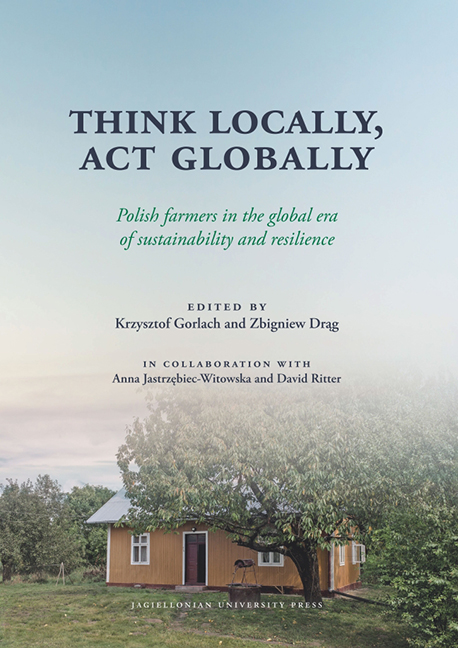Book contents
- Frontmatter
- Contents
- Family Farming: A foreword
- An Introductory Letter from the First Editor: Where the horses, cows, and even cats had their own names
- Part One Theoretical and Methodological Considerations
- Part Two Changes in the Post-Communist Transformation
- Part Three Diversification of Farmers’ Strategies
- Part Four Some Independent Studies
- Conclusion: Some Final Remarks from the First Editor
- Afterword: Renewing a Sociology of Agriculture
- Biograms
Some Introductory Remarks by the Editors to Part Three
Published online by Cambridge University Press: 16 July 2022
- Frontmatter
- Contents
- Family Farming: A foreword
- An Introductory Letter from the First Editor: Where the horses, cows, and even cats had their own names
- Part One Theoretical and Methodological Considerations
- Part Two Changes in the Post-Communist Transformation
- Part Three Diversification of Farmers’ Strategies
- Part Four Some Independent Studies
- Conclusion: Some Final Remarks from the First Editor
- Afterword: Renewing a Sociology of Agriculture
- Biograms
Summary
What is a contemporary Polish farmer like? What specific characteristics can be found in Polish farmers? Previous chapters presented attempts to answer these questions while treating surveyed farmers as one category and concentrating analyses primarily on determining the extent of similarities and differences between them. The analyses were conducted at the level of farm units and involved simple, one-level modeling. No less interesting was the issue of differentiation of farmers’ characteristics according to place of residence, as presented in this part of the book. Such characteristics can be perceived as local specifics of farms and their users. This matter is also essential in the context of the leading thought of this work: think locally, act globally
Considering the above, single-level modeling appeared to be insufficient to learn about the impact of territorial differentiation on matters such as: the functioning of farms, decision-making strategies, and the course of farm users’ everyday lives. Multilevel analysis seems more appropriate here. It is applied in the form of a two-level model and presented in two consecutive chapters of the monograph; these chapters are then distinguished as a separate part to emphasize the specifics of their content. Chapter 10 discusses the impact of territorial differentiation on the choice of farm management strategy and Chapter 11 addresses the relationship between the place of residence and life strategies of surveyed farm users/operators.
Application of multilevel analysis is determined by the structure of collected data. The data are only to be used if they qualify as hierarchically nested data, meaning that the observations from the lower level are included in the higher level. In the case of two-level analysis, territorial units such as counties might constitute a higher (second) level of analysis and this is reflected in the described study. Level one consists of farmers and their farm units nested within these counties. What also might be discouraging researchers from applying the multilevel model is the number of observations necessary on particular levels. To fully utilize the potential of the two- -level model, one should accumulate data from at least 100 units of level two, and in each of the level two units there should be a minimum of 30 nested units from level one.
- Type
- Chapter
- Information
- Think Locally, Act GloballyPolish farmers in the global era of sustainability and resilience, pp. 413 - 416Publisher: Jagiellonian University PressPrint publication year: 2021



